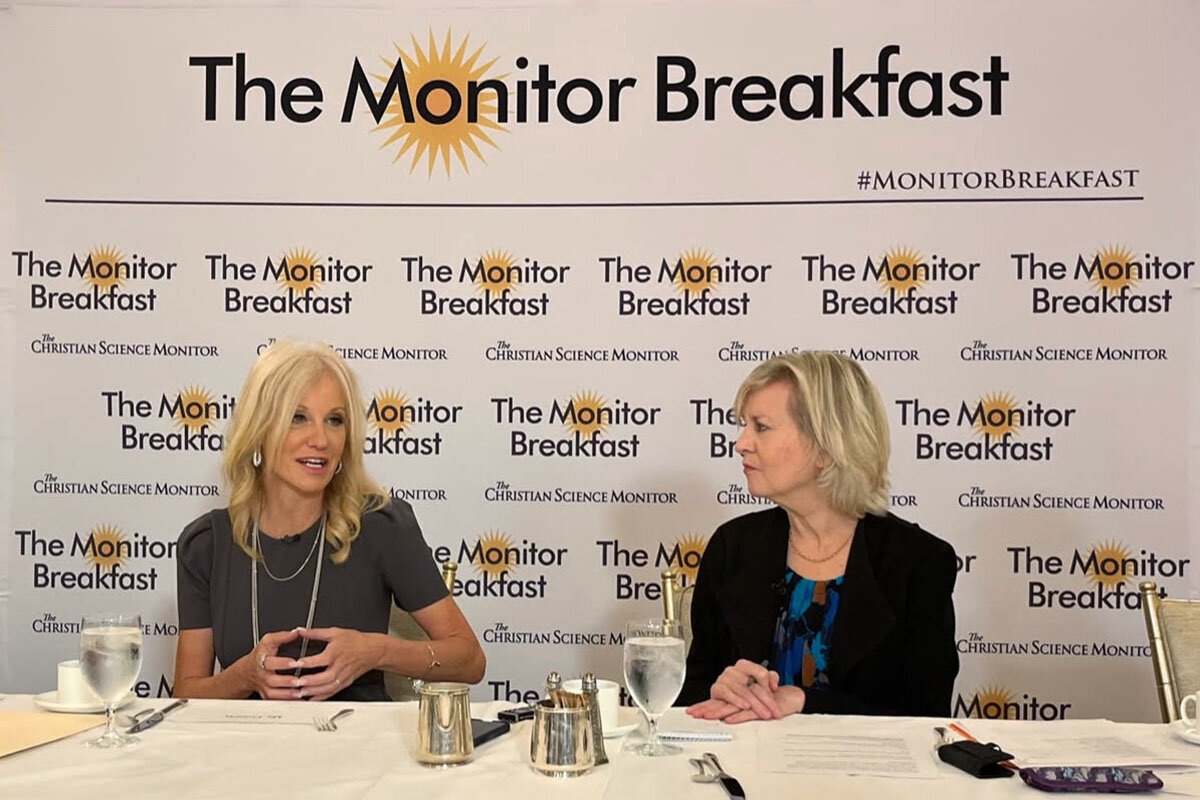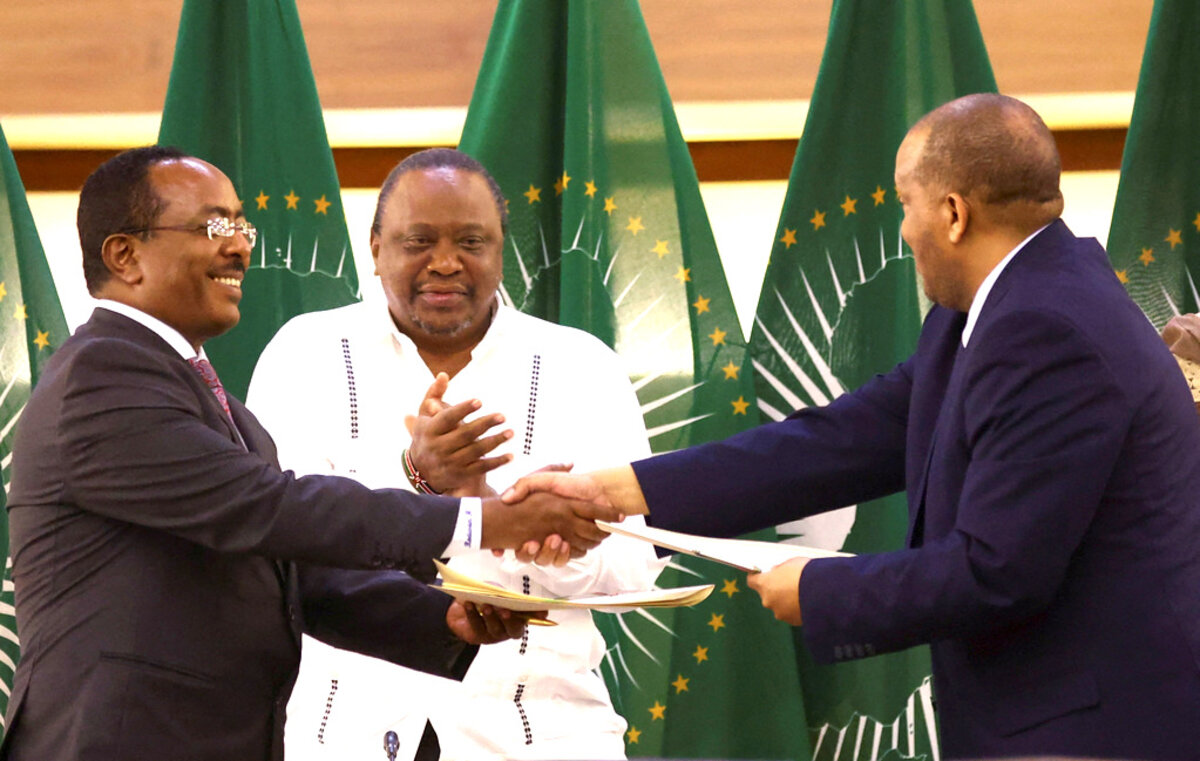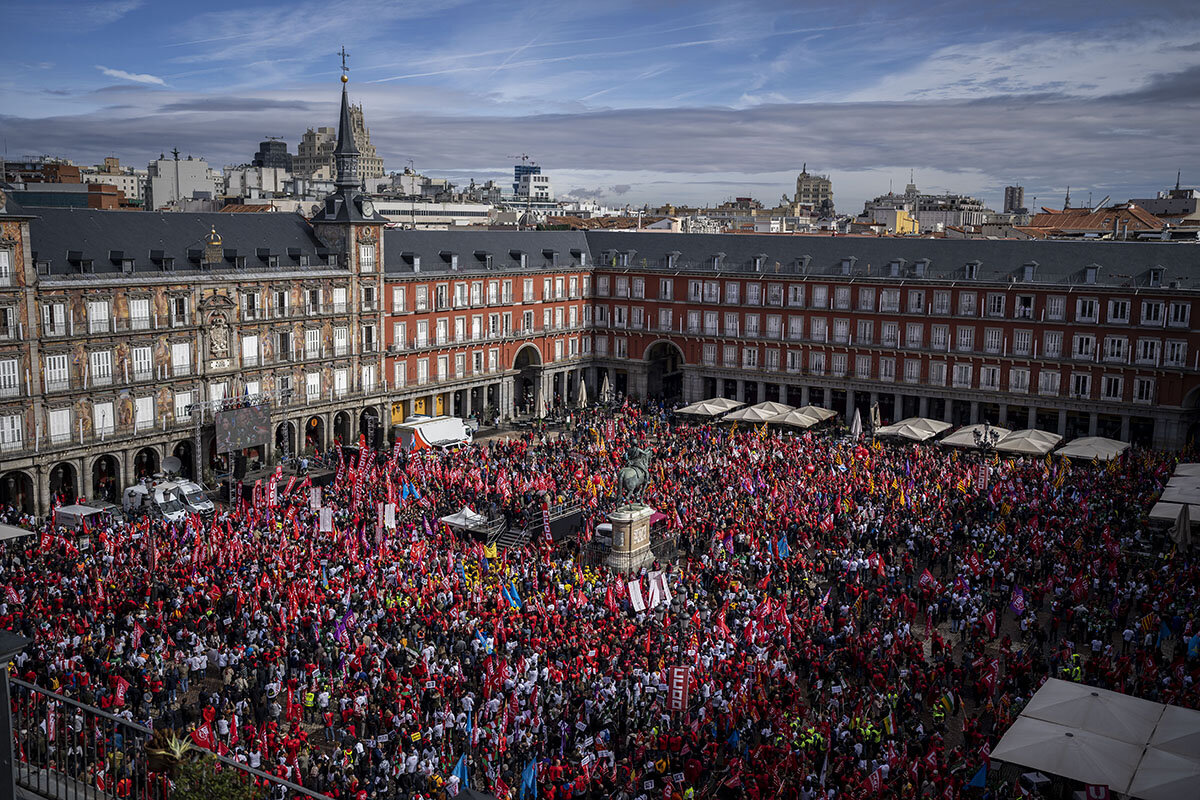The incoming Congress is likely to be less supportive of U.S. funding for the Ukraine war. Yet for now, Americans mostly see supporting Ukraine as the right thing to do, and the war as “winnable.”
Monitor Daily Podcast
- Follow us:
- Apple Podcasts
- Spotify
- RSS Feed
- Download
 Mark Sappenfield
Mark Sappenfield
At first blush, the conference for writers and artists this weekend at the Chaldean Cultural Center in West Bloomfield, Michigan, might seem rather unremarkable. But for Weam Namou, it is nothing less than groundbreaking, if not historic.
The Chaldeans are largely a community of ancient Mesopotamian Christians who have been persecuted and harassed for centuries, then nearly exterminated by the genocidal campaigns of the Islamic State. Ms. Namou has heard her people called extinct – now essentially vanished from their ancestral homeland in Iraq with their language of Aramaic (the language Jesus spoke) seen by some as an artifact of history, no longer alive.
That makes Saturday’s conference much more than an academic pursuit. It is nothing less than a rebellion, fighting for the soul of a resilient people. “We have a sense of responsibility to keep this story going,” says Ms. Namou, executive director of the Chaldean Cultural Center.
The conference was the idea of Roy Gessford, a longtime Monitor reader and Aramaic scholar whom I’ve gotten to know well. “This community has been persecuted at a level that most Westerners could never understand,” he says. “They no longer have a homeland.”
That makes the site of the conference important. Chaldeans have found a new homeland in the Detroit area. “This place is sacred land to us,” says Ms. Namou. “It saved our story.”
And this weekend, for the first time, the community is gathering to tell that story. To Ms. Namou, it hints at a turning point for her people. “This is a sign for us of a lot of hope,” she says. “It’s an indication that things are changing, that they did not succeed in their attempts to destroy us.”










